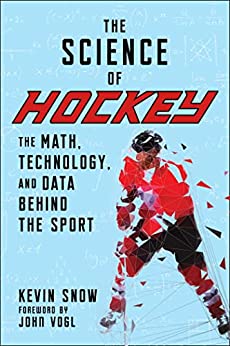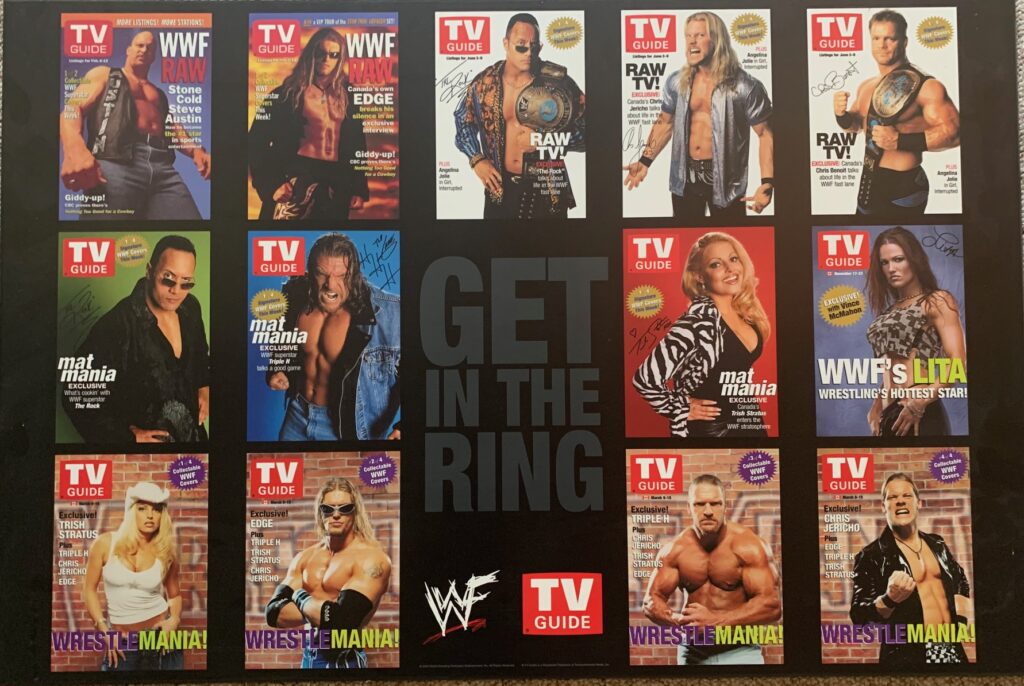It’s been more than six months since my latest book, The Science of Hockey: The Math, Technology, and Data Behind the Sport, was released across North America. As the title suggests, it’s a deep dive into how math, technology and data intersect with all aspects of the game. Don’t be scared off by the title; there’s something in it for everyone.

Over the course of four months last summer, I interviewed nearly 40 people for the project, ranging from former players and coaches, to a 92-year-old astrophysicist in Minnesota. But it was one of these interviews that really brought me back to my roots of writing.
Chapter nine focuses of body contact and the injuries that can occur as a result. When I wanted to get more information on concussions, I reached out to neuroscientist Chris Nowinski, who is also the co-founder and CEO of the Concussion Legacy Foundation. Wrestling fans will remember Nowinski from his two years as a WWE superstar, a brief career that ended due to lingering concussion symptoms from a headshot he took in the 2003 Royal Rumble.
Though our conversation never touched on his time in the ring, this wasn’t the first time I’ve spoken to someone associated with professional wrestling. Long before I became a fancy author, I spent seven years as a writer with TV Guide Canada. My primary focus was sports, but the editors would occasionally tag me in for an entertainment story.
Watching Monday Night Raw became of a staple of our Tuesday workday at TVG headquarters at 25 Sheppard Avenue West in Toronto, thanks to TSN’s 4 p.m. rebroadcast of the previous night’s episode. The motley crew of myself, Ken Carriere and Greg David would hole up in the office screening room every week to watch, even if we’d already seen it the night before.
It was also in that same room where I first saw the epic 1998 Hell in a Cell match between Mankind and The Undertaker. Ken had recorded it at home, and brought his VHS tape to the office Monday morning and insisted we all watch it immediately. The rest, as they say, is history.
As the Attitude Era took hold on pop culture, WWE’s weekly television numbers were making everyone take notice. Several mainstream magazines south of the border like Entertainment Weekly and TV Guide US had already featured several superstars on the cover, and I wanted us to do the same.
I pitched the editors on the idea, and they agreed to give it a shot. My first feature story ran in February 1999, along with a pair of collector’s edition covers featuring “Stone Cold” Steve Austin and Canada’s own Edge. While there were some long-time TVG subscribers that didn’t appreciate this change of pace from their favorite weekly magazine (including many that threatened to cancel), it turned out to be one of the best-selling issues in recent years. Not only were the editors thrilled, but the WWE superstars went on to make regular cover appearances over the next few years.
For the first cover story I was sent (via train!) from Toronto to Albany, NY, with the interviews taking place on Monday afternoon prior to Raw. When I arrived at the hotel bar on Sunday night, I was surrounded by WWE wrestlers, staff, and a group of Aerosmith roadies that were in town to prepare for a Tuesday concert. It couldn’t have been a more fitting beginning to my journey.
The next day I sat in the arena seats with Edge and Christian, talking about their early days in the business along with our mutual fandom of the Toronto Maple Leafs.
Later in the day — and six months after seeing him get launched off a cage in Pittsburgh — I had an audience with Mick Foley to discuss that memorable moment.
Over the years I’ve been privileged to have interviewed some of the biggest stars in the business, including The Rock, Triple H, Chris Jericho, Chris Benoit, and Bret Hart, not long after he joined WCW following the infamous Montreal Screw Job. In fact, an autographed picture of The Rock and I still hangs above my desk at home.
The Rock Dwayne Johnson and Kevin Snow, then of TV Guide Canada.
Without question one of my favorite interviews ever was with Trish Stratus back in 2001. I’d seen Trish many times in her appearances on TSN’s Off the Record, which essentially vaulted her into the hearts and minds of wrestling fans. Trish was so genuine and personable, and she was very excited to find out she’d be one of the covers for that issue. So naturally I went full fanboy when writing the story about the future Hall of Famer: “There’s no doubt the petite and well-spoken Trish Stratus is the kind of girl you could take home to mom. But it’s her blonde and bodacious side that will have dad patting you on the back later. Maybe it’s this combination of brains and beauty that has made her one of the WWF’s most popular newcomers.”
Somehow I snuck that past the editors and still had a job the next day.
Being able to write about the WWE is something I look back on fondly. Sure, some of my friends (and my parents) wondered out loud how I could make a living writing about wrestling. But as a kid who spent many Sunday nights at Maple Leaf Gardens watching the likes of Ricky Steamboat and Greg “The Hammer” Valentine, I couldn’t have been happier.
I still tune in to the various television offerings, even checking in on some familiar names in AEW. And of course, pay-per-views like WrestleMania, SummerSlam and Survivor Series are always on my must-see TV list. It’s been a while since I’ve been to a live event, and I always tell people it’s something you have to do at least once in your life. The action is riveting, and it rivals only airports as some of the best people watching.
And who knows, maybe I’ll get a chance to update my 2017 young adult book, Ronda Rousey: Conquering New Ground, with her wrestling exploits.
In the words of Billy Red Lyons: “Dontcha dare miss it!”
TOP PHOTO: TV Guide Canada WWF-related covers.
RELATED LINKS
- Buy The Science of Hockey: The Math, Technology, and Data Behind the Sport at Amazon.com or Amazon.ca
- SlamWrestling Master Book List
- Guest Column story archive

